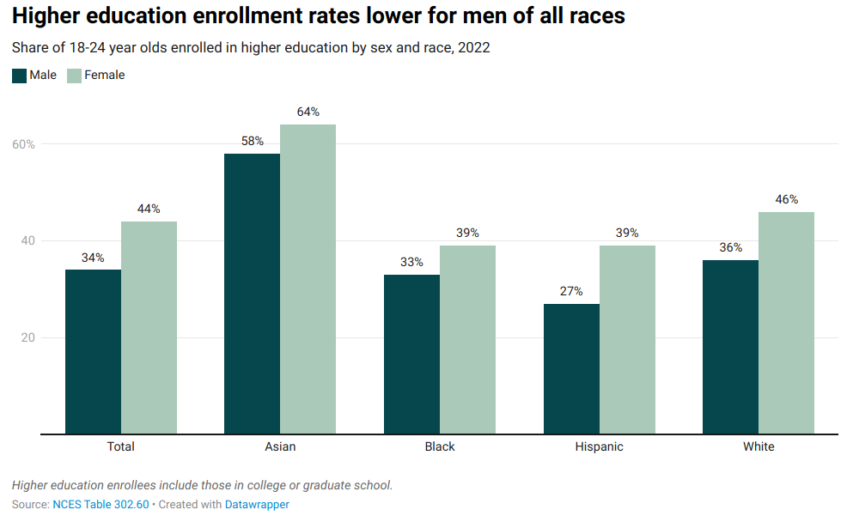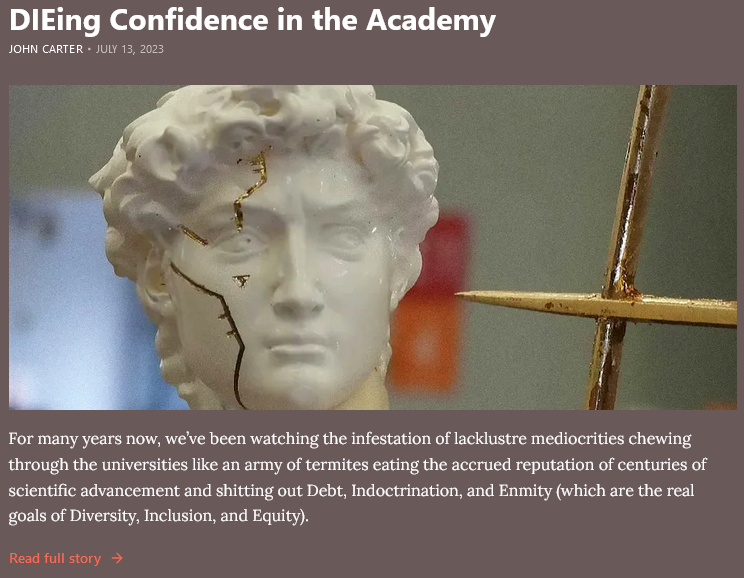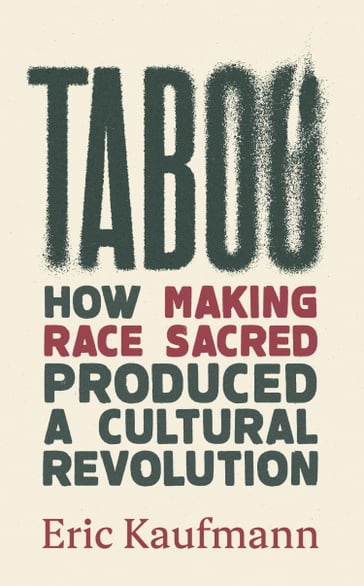Finally, Game of Thrones. I think it’s the same deal here, the same faux world weary cynicism. I’ve only seen one or two episodes of the show, but I read the first two or three books, up to the point where I realized two things: 1) he has no idea how he’s going to finish the story, and 2) it’s yet more tedious PoMo “deconstruction”.
Again, I guess I can forgive my colleagues, under-sexed little closet cases that they are, for being distracted by the boob cornucopia up on screen, but in the books, anyway, this comes through plain as day: Everyone in Westeros is either a psychopathic scumbag, or dead. In the very best PoMo style, the author is rubbing our faces in his belief that, since it’s extremely difficult to be heroic — or, all too often, merely decent — everyone who even thinks about trying is a fool, and deserves all the awful shit that happens to him. I’m told that back in the 18th century, a fun topic of debate at salons is whether a society of atheists could endure. Martin’s entire oeuvre seems dedicated to proving that life — mere, grubby, eating-shitting-sleeping existence — will continue in a society composed entirely of scumbags … but he has no idea why.
I have no idea why this idea (if that’s the right word) is so deeply appealing to academics, but evidently it is … and these are the people who are teaching your children.
Severian, “The One Pop Culture Thing”, Rotten Chestnuts, 2021-09-16.
December 7, 2024
QotD: Game of Thrones as PoMo “deconstructionism”
December 2, 2024
QotD: Intersectionality on campus
… intersectionality’s intellectual flaws translate into moral shortcomings. Importantly, it is blind to forms of harm that occur within identity groups. For a black woman facing discrimination from a white man, intersectionality is great. But a gay woman sexually assaulted by another gay woman, or a black boy teased by another black boy for “acting white”, or a Muslim girl whose mother has forced her to wear the hijab will find that intersectionality has no space for their experiences. It certainly does not recognize instances in which the arrow of harm runs in the “wrong” direction — a black man committing an antisemitic hate crime, for instance. The more popular intersectionality becomes, the less we should expect to hear these sorts of issues discussed in public.
Perhaps the most pernicious consequence of intersectionality, however, is its effect on the culture of elite college campuses. Some claims about “campuses-gone-crazy” are surely overblown. For instance, judging from my experience at Columbia, nobody believes there are 63 genders, and hardly anyone loves Soviet-style communism. (That said, the few communists on campus tend to despise intersectionality with an unusual passion.) But one thing is certainly not exaggerated: intersectionality dominates the day-to-day culture. It operates as a master formula by which social status is doled out. Being black and queer is better than just being black or queer, being Muslim and gender non-binary is better than being either one on its own, and so forth. By “better”, I mean that people are more excited to meet you, you’re spoken of more highly behind your back, and your friends enjoy an elevated social status for being associated with you.
In this way, intersectionality creates a perverse social incentive structure. If you’re cis, straight, and white, you start at the bottom of the social hierarchy — especially if you’re a man, but also if you’re a woman. For such students, there is a strong incentive to create an identity that will help them attain a modicum of status. Some do this by becoming gender non-binary; others do it by experimenting with their sexuality under the catch-all label “queer”. In part, this is healthy college-aged exploration — finding oneself, as it were. But much of it amounts to needless confusion and pain imposed on hapless young people by the bizarre tenets of a new faith.
Coleman Hughes, “Reflections on Intersectionality”, Quillette, 2020-01-13.
November 29, 2024
November 7, 2024
QotD: Fear of … freedom
When Rousseau said you’d need to force men to be free, he wasn’t joking. It’s hard to admit the truth of that statement, especially as Rousseau, like all Leftists, quite obviously pleasured himself to the thought of forcing great masses of people to do things, but he’s right for all that. As Nikolai points out, so many people quite obviously enjoy the COVID madness, because it gives structure to their otherwise stressfully chaotic lives. Everyone, even the most rugged Marlboro Man individualist, has experienced “analysis paralysis”, that rising sense of near-panic that comes from having too many choices. Your developmentally normal person quickly snaps out of it — a mental slap upside the head in the form of “it’s just peanut butter, dummy!” usually does it — but a vast and increasing number of people never do.
Since this is my blog and it’s Friday and all that, I’ll go ahead and expand this into a nebulous Theory of Everything: What people really want, deep down, is drama within limits. Ideally, you have the sense that something better is possible — and that something worse is possible — but, most importantly, the sense that if you follow the rules, and make sure everyone else follows the rules, neither of them will happen.
If you reach what appears to be an end state — that is, there’s no realistic possibility of anyone going higher or lower — you see nasty Karen-ish behavior. From everyone, everywhere, always. The Z Man did a piece the other day on Sayre’s Law, which anyone who has ever dealt with eggheads instinctively understands: “The fighting is so vicious because the stakes are so small”. If you read the bios of the real lunatics — the insane-by-egghead-standards, I’m talking — you almost always see that they’re tenured at some second rate academy. They’re topped out, and they know it. Hang around the faculty lounge long enough, and you learn to spot it in their eyes — that precise moment when they realize that Harvard won’t be calling, so they’re stuck here at Flyover State. They can’t move up, and thanks to tenure there’s no realistic (in their minds) possibility of falling down. The only drama left, then, is interpersonal drama, which is why they’re such vicious, obnoxious bitches to everyone, everywhere, always.
It works outside the academy too, of course. The two main CRT loons, Robin De Angelo and that Ibram X. Kendi guy, are maxed out and they know it. They weep, because they’ve seen they have no more worlds to conquer. Ever-escalating lunacy is the only emotional escape hatch they have left. You saw the same deal with “the workers” under Communism. They’re stuck there, forever, and they know it. They can’t move up — wrong class background, comrade, plus you lack Party connections — but they can’t really move down, either, if for no other reason than the KGB, vast as it is, can’t bother with every moribund tractor factory in Krasnoyarsk. Can’t move up, can’t move down, so you drink yourself into oblivion and spend your still-conscious hours in petty backbiting.
Severian, “Mailbag Etc.”, Rotten Chestnuts, 2021-07-06.
October 27, 2024
Whittier College as a small-scale model of the decline of higher education
At Postcards From Barsoom, John Carter returns to the state of higher education in the west, this time looking at the plight of Whittier College which appears to be well along in a death spiral:

Whittier College’s most famous graduate, Richard M. Nixon, 1 June 1972.
Official portrait via Wikimedia Commons.
While I like to jump around subject matter here, in order to keep myself – and you – from getting bored, one topic that I return to regularly (as a dog returns to his vomit, as a sow returns to her mire) is the ongoing polycrisis in higher ed. You may have noticed, as I just wrote about this a week ago. Academia Is Women’s Work created a bit of a buzz. It seems to have struck a nerve with a lot of people, both with those who have observed the same things that I’ve noticed, and who had the same “ah-hah!” moment that I did once the phenomenon of male flight was connected to the myriad symptoms of academic decay that we all know so well; and with those (mainly women, naturally) who reacted with sputtering outrage – misogynist! incel! – when my Xitter thread on the subject went viral and broke containment in the basedosphere. Despite quite a few hostile eyeballs on the thread, the only thing they could find to correct was a grammatical typo (*its!) in the opening tweet.
When writing about the DIEvory Tower I usually keep it very general, as the problems are systemic, affecting the entire sector, and the view from orbit avoids giving the impression that the issues are specific to any one institution. But a couple of stories recently came to my attention which are simply too perfect not to share with you. Each of them provides a sort of holographic totality of the academic polycrisis, illustrating all of the afflictions in specific, personalized detail.
[…]
The title of this article really says it all: “Plunging enrollment, financial woes, trustee exodus. Whittier College confronts crisis“. It’s a bit out of date now – it was published about a year and a half ago – but the subject matter remains timeless. It has everything: infrastructural decay, forced diversity, incompetent and corrupt administration, a terrified faculty, accusations of racism, collapsing enrolment, angry alumni, reduced donations, budgetary problems. It’s all there.
Whittier College is a small liberal arts school in California, founded in the 19th century by abolitionist Quakers, and known mainly for being President Richard Nixon’s alma mater. It has seen better days:
[T]he once-bustling quad is often all but empty these days, students say, and inside the Wanberg Hall dormitory, carpets smell musty, the Wi-Fi is spotty, and 25 students share two restrooms with toilets that frequently break down and take ages to fix. The eerie quiet outside and fetid bathrooms inside are signs of the turmoil roiling one of California’s oldest liberal arts colleges.
Imagine spending $49,000 a year to use fetid bathrooms.
Enrolment and revenue have both collapsed over a very short timespan:
Since 2018, enrollment has plummeted by about 35%, from 1,853 students to about 1,200, according to college figures. Annual revenue has plunged by 29% over roughly the same period, audited financial statements show. … This term, faculty report the number of undergraduates is just 1,027.
The athletics programs are being sacrificed:
Partly to save money, Whittier cut football and three other sports programs last year.
One of the other teams that got shut down was lacrosse, which is a very white sport. Sheer coincidence, probably. “Partly to save money,” though, huh.
The president of Whittier College is one Linda Oubré. Oubré has an MBA from Harvard Business School, previously served as a dean at College of Business at San Francisco State University, has worked as a consultant, was president of a teeth-whitening spa, and is also – and this surely the most important line item on her curriculum vitae – professionally qualified as a black woman. Given these impeccable credentials, it will be no surprise to learn that Whittier’s problems commenced immediately upon Oubré taking the helm.
[…]
Oubré is very concerned about people doing racisms:
For a decade, more than half of Whittier’s undergraduates have been people of color. But in an hour-long talk at a South by Southwest education conference earlier this month, Oubré told attendees she encountered attitudes at Whittier such as, “‘We can’t have too many Hispanics,’ whatever, fill in the blank, ‘because the white kids won’t be comfortable’.”
It seems very unlikely that any of the faculty at a contemporary liberal arts college would have dared to suggest that the potential discomfort of white students was something to be avoided – yes, I’m saying that I think Oubré just made that up – but it’s revealing that she thinks that saying that people saying that the white kids might be uncomfortable with too much diversity is an own. The white kids are supposed to be uncomfortable! Also: a greater-than-fifty-percent non-white student body, in a country that is (for now) majority white, is apparently an insufficient level of diversity. Sufficient diversity is zero white people. But we already knew that.
October 25, 2024
Diversity at all costs
In the National Post, Harry Rakowski explains why Toronto Generic University — sorry, I mean “Toronto Metropolitan University” — is reserving 75% of available enrolment in their new medical school for more diverse candidates, even if they wouldn’t normally qualify by their grades:
We have a critical shortage of doctors and nurses in Canada. Almost a quarter of our population can’t find a family doctor. Wait times for seeing a specialist, getting medical imaging and surgical dates continue to climb, with only Band-Aid solutions being proposed by the federal and provincial governments. We desperately need to expand medical schools and the licensing of highly qualified foreign medical graduates.
So it was welcome news to hear that 94 undergraduate medical students and 105 postgraduate students (residents) will be entering the newly established Toronto Metropolitan University School of Medicine when it opens in September 2025. The city of Brampton, Ont. donated a former civic centre along with $20 million in funding for renovations in order to make the school happen.
However, it was highly disturbing to learn that admissions to the new facility will be driven by a culture-war philosophy that will dilute the quality of medical practice.
There’s no doubt that diversity in medicine helps to optimize care and provide better outcomes for the differing needs of Canada’s highly diverse population, which includes many individuals disadvantaged by their geography as well as racial and economic inequality. But TMU is going about it the wrong way. Its admissions policy will focus on DEI (diversity, equity and inclusion) rather than quality.
TMU’s plan is to reserve 75 per cent of its enrolment slots for “equity-deserving” students — Black and Indigenous applicants and others who meet “equity-deserving” criteria including students who identify as members of the 2SLGBTQ+ community, those who are “racialized” and individuals “with lived experiences of poverty or low socio-economic status.” It will accept a minimum grade point average (GPA) of 3.3 (B+) — or even less for select Black and Indigenous applicants — and then use GPA only as an application criterion, not as a selection criterion. By comparison, the University of Toronto’s Temerty Faculty of Medicine requires a minimum GPA average of 3.6 for undergraduate applicants (although average acceptance is now 3.95).
October 24, 2024
October 19, 2024
Changing gender balance in occupations and in higher education
At Postcards from Barsoom, John Carter ruminates on the likely downward path of many institutes of higher learning as current gender balance changes continue:
An occupation that flips from male to female dominance invariably suffers not only diminished prestige, but also a decline in wages … which, once again, makes sense in the context of sexual psychology. A man’s income is one element (and a big element) of a woman’s attraction to him, but the reverse is not true; if women are paid less, this does not really hurt their value in the sexual marketplace at all, and so they will push back against it much less than men would. This is probably what lies behind the tendency of women to be less forceful when negotiating salaries.
To the point: ever since the 1970s, women have overtaken and gradually eclipsed men within higher education. There is a gap in enrolment, consistent across racial groups:
[…]
Across all programs, at all academic levels, American universities recently reached the threshold of 60% of the student body being female.
This will be a disaster for academia.
Indeed, it’s already a disaster. About a year ago, I analyzed a Gallup poll which revealed that the confidence of the American public in the trustworthiness and overall value of the academic sector had declined precipitously over the course of the 2010s.
In that article I examined several factors contributing to this DIEing confidence in the academy: the explosive growth in tuition fees, even as continuous relaxation of academic standards dilutes the actual value of a degree; the deplorable state of scholarship, with endless revelations of fraud, a seemingly irresolvable replication crisis, and the torrent of psychotic nonsense that passes for ‘research’; the increasingly frigid social environment enforced by the armies of overpaid, sour-faced administrators. Almost all of these, however, are related in some way or another to the feminization of academia.
And it is probably going to get much worse before it gets better.
As discussed in this recent article by Celeste Davis of Matriarchal Blessing, research on male flight indicates that a 60% female composition represents the tipping point beyond which men perceive an environment as feminine, which then leads to a precipitous decline in male participation. Davis appears to be some sort of feminist3, but I want you to look past that and give her article a read; it is very thorough, well-researched, and thought-provoking (and also the direct inspiration for this article).
[…]
Universities are belatedly starting to notice that male enrolment is dropping fast, particularly among white men (I wonder why…), and are starting to make noises about maybe thinking about perhaps looking into ways of trying to recruit and retain more men (albeit, not specifically white men).
This seems unlikely to succeed.
Even if universities are successful in setting up programs to increase male recruitment, they will be fighting an uphill battle against the sexual perception that has already set in. Once something is coded as being a feminine hobby, it is extremely difficult to change that code. While it’s very easy to list examples of professions that have switched from male to female dominance, off the top of my head I have a hard time coming up with examples of the reverse. This suggests that female dominance tends to be sticky. There’s no reason to expect this will be any different with academia, either within individual programs, or across the sector as a whole.
This is an entirely different problem from the one faced by female entryism. In the initial phases of female entry, the primary difficulty faced by women is that it is simply more difficult to compete with men – in the case of athletics, effectively impossible. Women must therefore either work extremely hard, or the work must be made easier for them. In practice, since the 1970s we’ve seen both of these, with “working twice as hard as the boys” predominating in the early years, and assistance from special programs predominating later on.
By contrast, the central obstacle faced by anyone trying to attract men to a female-dominated environment is that men are deeply reluctant to enter. As a third of young men told Pew when asked why they didn’t attend or complete university: they just didn’t want to. It isn’t because they can’t compete with women. They can, usually with ease, but competition is pointless because it will gain them nothing. Special programs to assist men are beside the point; if anything, they work against you, because the implicit message with any special program for men is that they need help to compete with women … thereby making competition even more pointless. “You beat a girl but you needed help to do it”, is going to impress the girls even less than beating a girl unaided.
September 14, 2024
QotD: Academia
… the ivory tower — that is to say, an institution where all the drama is entirely self-manufactured by vain, petty people who think they’re much smarter than they actually are. That rules out most genres people actually enjoy reading right there. There’s comedy, I guess, and I considered giving that a go, but the modern university is beyond parody. Maybe Joseph Heller at his absolute apex could pull it off, but I’m no Joseph Heller. Nor am I Franz Kafka, who is the onlie begetter of the only other genre that would cover academia: Surrealist, absurdist, dystopian horror. The adjective “Kafkaesque” describes graduate school perfectly, no doubt, but if you somehow need a dose of that, just go read The Trial. Or watch the film Brazil, and imagine everyone is twice as polysyllabically self-important …
Severian, “Storytelling Fail”, Rotten Chestnuts, 2021-07-13.
September 2, 2024
August 30, 2024
The urge to power
At Mindset Shifts, Barry Brownstein explains why the urge to gain power over other people is particularly strong in those who don’t have meaningful lives of their own:

King Louis XIV, the “Sun King”.
Portrait by Hyacinthe Rigaud (1659-1743) sometime in 1700 or 1701 from the Louvre via Wikimedia Commons.
One of my more memorable exchanges with a student came in a principles of economics class. Part of the assignment for that week was chapters from Matt Ridley’s The Rational Optimist. Ridley compared the living standards of an average worker today with those of The Sun King, Louis XIV, in 1700. Some of my more ahistorical students were incredulous at Ridley’s description of the grinding poverty of the average person just a few centuries ago.
The King had an opulent lifestyle compared to others. Louis had an astonishing 498 workers preparing each of his meals. Yet his standard of living was still a fraction of what we experience today.
Ridley outlined the miracles of specialization and exchange in our time — an everyday cornucopia at the supermarket, modern communications and transportation, clothing to suit every taste. If we remove our blinders and see how many individuals provide services to us, Ridley concludes we have “far more than 498 servants at [our] immediate beck and call”.
Then, the memorable exchange occurred. One student shared that he would prefer to live in 1700, if he had more money than others and power over them. My first reaction was amusement; I thought the student was practicing his deadpan humor skills. He wasn’t. For him, having power was an attribute of a meaningful life.
If only my student’s mindset were an aberration.
During the reign of Louis XIV, French mathematician and philosopher Blaise Pascal diagnosed why some lust for power. In his Pensées, Pascal wrote, “I have often said that the sole cause of man’s unhappiness is that he does not know how to stay quietly in his room”. Pascal explained that, out of the inability to sit alone, arises the human tendency to seek power as a diversion.
Pascal asks us to imagine a king with “all the blessings with which you could be endowed”. A king, Pascal told us, if he has no “diversions” from his thinking, will “ponder and reflect on what he is”. Pascal’s hypothetical king will be miserable because he “is bound to start thinking of all the threats facing him, of possible revolts, finally of inescapable death and disease”.
“What people want is not the easy peaceful life that allows us to think of our unhappy condition.” That is why “war and high office are so popular”, Pascal argued.
Pascal argues individuals seek to be “diverted from thinking of what they are”. I would argue a better choice of words is what they have made of themselves.
I’ll let the reader decide how many modern politicians Pascal’s ideas apply to. With Pascal’s insight, we understand why conflict is a feature of politics and not a bug.
Pascal spares no one’s feelings. Some “seek external diversion and occupation, and this is the result of their constant sense of wretchedness”. For them, “rest proves intolerable because of the boredom it produces. [They] must get away from it and crave excitement.”
Let that sink in. A person able to exercise coercive power can use their morally undeveloped “wretched” mind to create endless misery for others merely because exercising power distracts them from their failures as human beings.
August 21, 2024
QotD: Cyclists at “Flyover State”
Compared to your average college town cyclist, Ed Begley Jr. is a paragon of humility. I’ve never understood it, but for so many of my fellow “Americans”, there seems to be this all-purpose Asshole License you can issue yourself. It’s kinda like the “White Privilege” card, in that no one has ever seen one, but unlike “White Privilege”, the people who imagine themselves possessors of the Asshole License use it, every minute of every day. Did the seventeen year old in your life just read The Fountainhead or The Catcher in the Rye? Then you know what I mean — that kid just issued himself the Asshole License. Obviously getting dreadlocks (if you’re White) or existing (if you’re black) grants you the Asshole License, as does “passing a Gender Studies course” or “realizing that Israel’s actions don’t always match up with its rhetoric”.
But, my friends, the easiest way to obtain an Asshole License is to take up cycling. It must be something about those doofy helmets — anyone willing to wear what looks like a giant athletic supporter jammed down over his eyebrows has to be some kind of douchebag to begin with, and since nut-squashing lycra pants must squeeze out whatever residual testosterone they had left, it’s no wonder that cyclists are such bitches.
Severian, “Luxury Beliefs”, Rotten Chestnuts, 2021-06-03.
August 16, 2024
QotD: American football
[F]ootball isn’t really a sport in America. It’s a religion. Almost every single game is played on a Saturday (college) or Sunday (NFL), which, for a Judeo-Christian country, means it’s played on the Sabbath. Accordingly, families come to a standstill when football is on. Tumbleweeds roll through usually busy towns. If anything squares with America’s reputation as a bunch of religious kooks, our faith in football is it.
Jonathan David Morris, “Our National Pastime?”, Libertarian Enterprise, 2005-04-23.
August 13, 2024
Taboo by Eric Kaufmann
In Quillette, John Lloyd reviews Eric Kaufmann’s Taboo:How Making Race Sacred Produced a Cultural Revolution:
Earlier this year, Eric Kaufmann, a Canadian professor of political science, left Birkbeck College in the University of London where he had taught for twenty years. He was also head of the political science department there, and already had a number of deeply researched books behind him. But neither long service, departmental prominence, nor publishing success offered much of a defence against three separate attempts to cancel him. Indeed, his 2018 book Whiteshift told against him, since it argued, inter alia, that white majorities should have as much right to protect their identity and culture as minorities, a position now perceived by some as evidence of racism. “Repressing white identity as racist”, he wrote, “and demonising the white past, adds insult to the injury of this group’s demographic decline. This way lies growing populist discontent, or even terrorism.”
During the first part of his career, Kaufmann mostly kept his conservative views to himself, and with good reason. When he revealed them in Whiteshift, he became a marked man and spent several years fending off persistent efforts to strip him of his job and livelihood. His academic colleagues were generally unsupportive, and some of them participated in the campaign against him. So, he left Birkbeck for the University of Buckingham, the first of a small clutch of private universities created since the 1970s with the enthusiastic backing of Prime Minister Margaret Thatcher. Buckingham takes pride in rejecting leftist monoculture in favour of an approach that privileges open debate without the risk of career obliteration.
These days, Kaufmann is — as the Scots saying goes — a “bonnie hater” (or what others might call a “happy warrior”). With his new book, he joins the best of those (disproportionately American) writers, journalists, and politicians alarmed by the activities of ideologically motivated individuals and organisations operating under the vague umbrella term “wokeism”. This inchoate movement, Kaufmann maintains, is deeply destructive of freedom (and of freedom of speech in particular), learning, virtue, public morality, patriotism, and emotional continence. It is, Kaufman recently told the Daily Mail, an “Orwellian threat to the [E]nlightenment — free speech, equal treatment, due process, objective scientific truth. I believe this new woke ideology threatens the foundations of our civilisation.”
Wearying of the years of harassment he received for his views (none of which, he stresses, was ever physical), Kaufmann moved to Buckingham. He wanted to take advantage of the opportunity to establish a Centre for Heterodox Sociology where progressive doctrines could be studied, dissected, and debated, a pursuit he believes would be impossible anywhere else. Buckingham received first prize for free speech in last year’s National Student Survey. It will now be required to live up to that distinction, since Kaufman’s approach — after many years spent avoiding conflict — has become direct and uncompromising. Any determined left-leaning student or scholar would find this an intolerable provocation — a display of prejudice and bigotry meriting expulsion from the scholarly body lest it spread to innocent souls insufficiently prepared to counter it.
The list of progressive doctrines Kaufmann has compiled to define “wokeism” is probably the most comprehensive assembled to date. Much of what concerns him most relates to education. He believes that higher education, in particular, has become a place of inflexible dogmas on race, gender, emotional fragility, and anti-white bias rather than a home of serious study, reflection, and discussion. But he does not believe—as many other critics of contemporary progressivism do—that this is a kind of warmed-over Marxism, in which the fragile student has taken the place of the exploited proletarian. Instead, progressivism’s concern for the outnumbered, the vulnerable, and the frail can be traced back to Christ’s teachings, and especially to his Sermon on the Mount reported in Matthew 5:5: “Blessed are the meek, for they shall inherit the earth.” This injunction is now marshalled into a secular hallowing of blacks (above all), Muslims, women, and LGBT individuals.
Kaufmann calls the upshot of this genealogy “cultural socialism” — a movement that privileges equality, but equality of outcome not merely opportunity. He points to a speech that US president Lyndon Johnson delivered to students at the historically black Howard University in 1965, in which Johnson claimed that “we seek not just equality as a right and a theory, but equality as a fact and equality as a result”. Suddenly, Kaufmann remarks, “the door was open to restricting liberty and equal treatment in the name of achieving ‘equality of result’.” Such a regime, he points out, will inevitably disincentivise effort and excellence. Why forgo pleasure to work hard when the dedicated and indolent alike will all be made equal in the end? It’s worth remarking, however, that socialism does not necessarily provide the low road to unequal equality. Kaufmann quotes the historian Eric Hobsbawm — an unapologetic communist until he died in 2012 — who insisted that privileging one group over another will destroy society by breaking it into mutually hostile communities.
July 27, 2024
Cancelling Orwell (again)
In The Daily Sceptic, Paul Sutton recounts a recent discussion with some Oxford graduate students where the topic of George Orwell came up:
The students maintained that the important thing is quality of writing but, paradoxically, this can only be judged by a strict contemporary “evaluation” of any Right-wing or outdated views. Inevitably, this contextualisation then reveals that said writers are “problematic” and “not as good as XYZ” – usually some figure who fits their sensibilities, and coincidentally one who’s almost always female – or at least better suited to the diversity required by these commissars.
So far, so well known and wearily familiar. The absolute impossibility of literature under such a mindset – one enthusiastically endorsed by graduate students who professed to live for literature – is utterly depressing. We’re in effect dealing with its cancellation.
I made a perfunctory effort in observing their complete inconsistency, but things got more interesting when Orwell was discussed. Of course, Orwell famously wrote against their stand, not least in his brilliant defence of Kipling’s literary merit and his refusal to allow orthodoxy to dictate his aesthetic preferences, in “Benefit of Clergy“.
Unfortunately, Orwell’s stint in the Burmese Imperial Police made him a despicable figure to the students, little better than a Waffen SS or Gestapo officer. True, he’d belatedly retrieved himself by his “eventual writing” in the 1940s, but he’d spent many years performing the dirty work of the British Empire. His famous essay, “A Hanging“, showed him enthusiastically hands on at it.
I’d honestly never heard such a narrow and limited view, and was intrigued. As a preposterous misrepresentation, it needs little rebuttal. “A Hanging” is indeed a brilliantly disturbing account of an Indian murderer being hanged, a man who’d have been executed at that time in any country. The essay explores the deep unease Orwell felt about his role, so it’s a lie to claim it shows him uncritically doing his job, let alone revelling in his exertion of British authority.
Such an interpretation shows a shocking lack of understanding. As does the idea that Orwell only recanted any pro-Imperial views in the 1940s; his underrated Burmese Days was published in 1934 and he wrote extensively about his disgust for the job he did in the late 20s and 1930s. Of course, he didn’t only feel disgust, nor would he pretend that the British brought only misery and were unique as imperial exploiters.
What I’m most interested in is how an alternative Orwell was then offered up, a writer who’d accepted the British Empire was “problematic” yet offered a nice comforting view of how nice and comforting life can be – if you agree with the progressives, that is.Step forward Jan Morris and his trilogy Pax Britannica. Now, I haven’t read this non-fictional account of the British Empire but from background knowledge, it’s not in any way a replacement for Orwell or even remotely comparable. It’s an exhaustive historical work, not a personal creative one. But this trilogy was extolled by the students as what Orwell should have done when discussing empire. There was the implication that Orwell could now be – somewhat thankfully – ignored.
Bizarrely, the Englishman then introduced Joyce, first saying that the man was a lifelong sponger who’d have probably fleeced him, but as a writer was the very model of a pan-European, liberal and open to all cultures. Again, the grubby contradictions and sheer banality of such a perspective are eye-popping – from a DPhil student in perhaps the country’s finest university.
And I’ve a nagging feeling that Jan Morris – a famous case of gender realignment (he “transitioned” to female in 1972) – was picked for the “acceptable author” reasons. That’s the problem with “author context” vetting – as with “diversity hires”. Much as I’ve enjoyed Morris’s travel writing, especially Oxford, it’s staggering for this author to be proposed as some alternative to Orwell! Not only in terms of obvious lesser importance, but they’re not remotely comparable in terms of genre or aims. How could any serious reader – let alone one at a leading university – talk such gibberish?











